Case study: the evolution of watch storage boxes
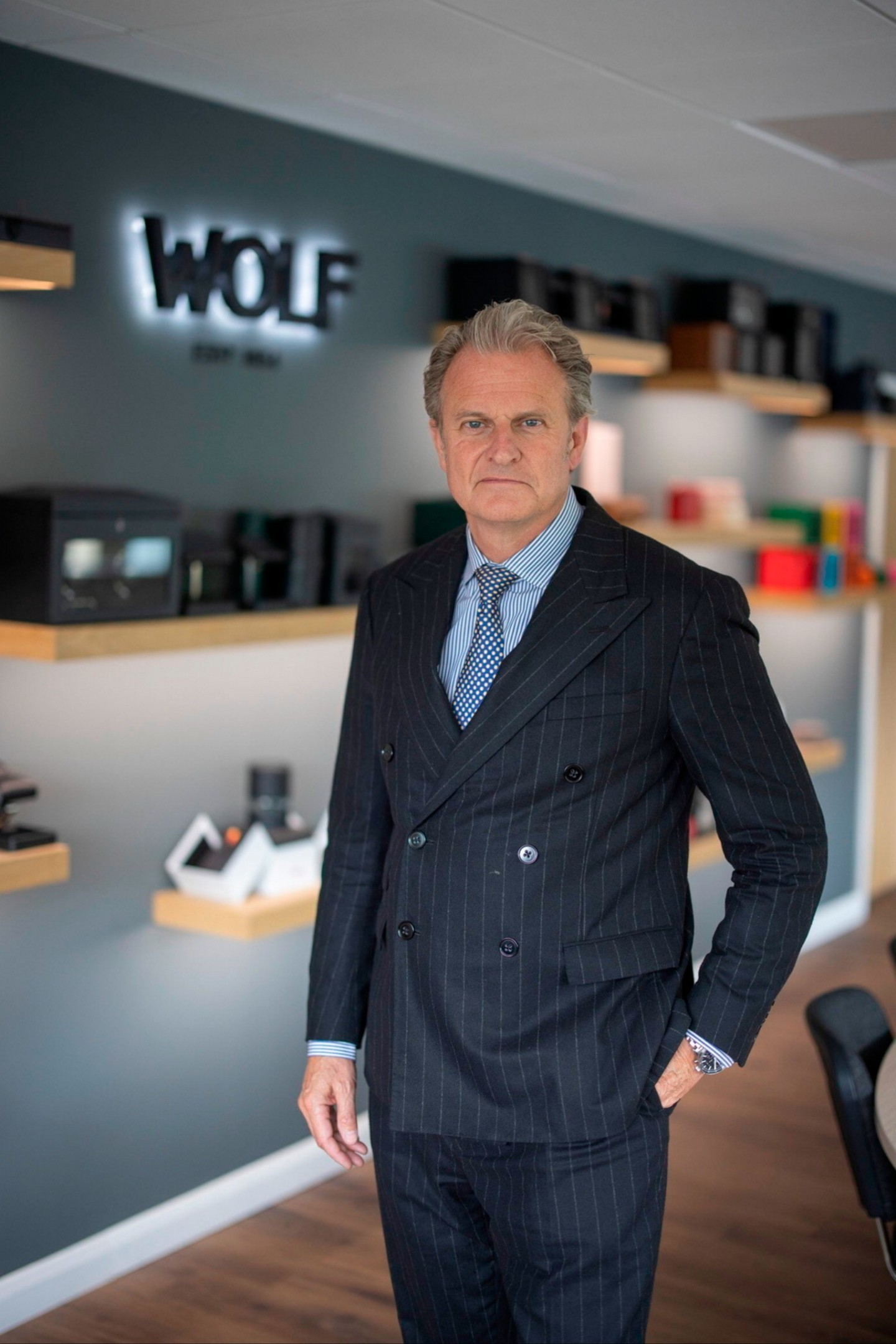
Roula Khalaf, Editor of the FT, selects her favourite stories in this weekly newsletter.
Thinking outside the box might have become a favourite mantra among thrusting business types, but the 189-year success story of British manufacturer Wolf has largely been down to the box itself.
German silversmith Philip Wolf founded the business in 1834 after realising that people were less interested in the objects he was making than in the unusually luxurious containers in which he was delivering them.
Today, Wolf has its headquarters in West Sussex, near the South Downs in southern England, as well as offices and warehouses in the Netherlands, Hong Kong and Los Angeles. The company is run by 58-year-old Simon Wolf — marking five generations of unbroken family ownership.
Wolf attributes the company’s longevity to a dogged commitment to innovation. It began with the original idea of presenting jewellery in attractive, well-made packaging and, over the decades, has resulted in the invention of everything from a patented hinge design to the revolving ballerina figure now synonymous with musical jewellery boxes.
But it is foresight as much as innovation that, according to Wolf, has put the company at the head of the field as a maker of “storage solutions” for wrist watches — a niche that has expanded dramatically since the turn of the century as watch sales have boomed.
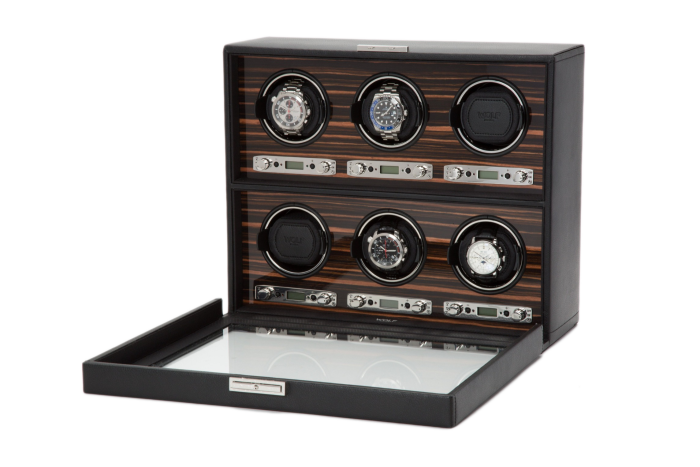
There are now several names in the business of making boxes, winders, rolls and safes aimed at everyone from owners of a single, special watch to collectors who have hundreds, even thousands.
Brands such as Rapport and SwissKubiK sell affordable, modular winding cubes that can be joined together. Italian leather goods specialist Underwood makes luxury models with loftier price tags. And, for the truly obsessive horophile, specialists such as Erwin Sattler, Döttling, Scatola del Tempo and Buben&Zörweg produce systems that would sit comfortably in the lair of any James Bond nemesis.
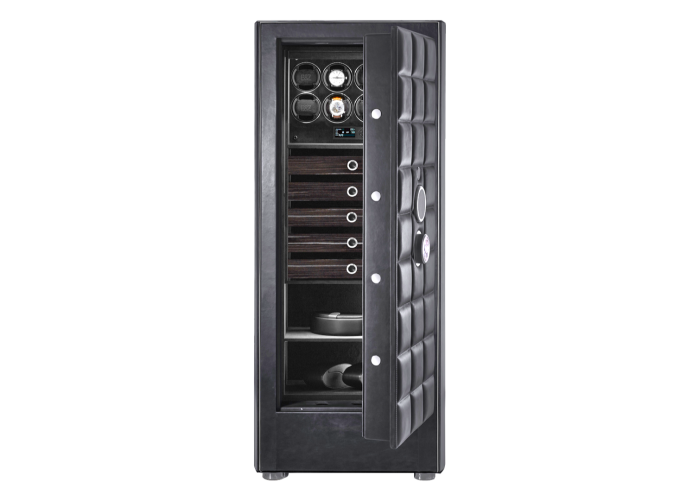
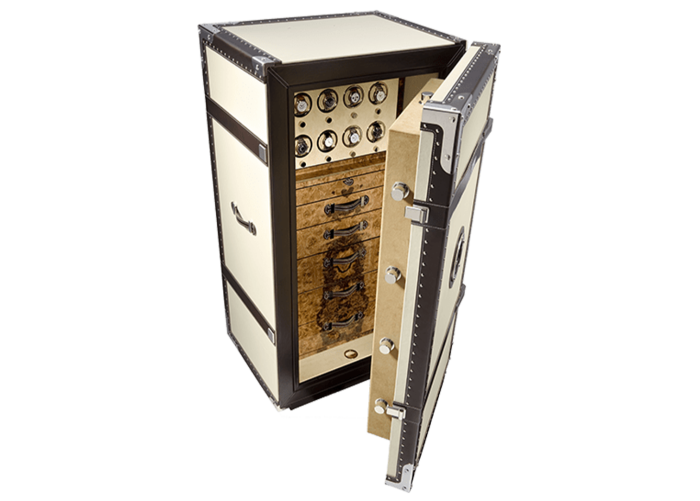
Buben&Zörweg, for example, offers computer-controlled “watch walls” that can hold up to 1,000 timepieces and can be equipped with built-in wine coolers and cigar humidors.
But Wolf was ahead of the game 38 years ago when it added a range of finely crafted watch boxes and tubular watch rolls to the already diverse lines of products it created primarily for the horology and jewellery industries (although it also made drinks coasters for the now-defunct Concorde supersonic passenger jet).
By the end of the 1980s, it was supplying presentation boxes to brands such as Tissot, Omega and Zodiac and, as the new millennium approached, Wolf expanded the theme into the development of automatic winding systems.
Leaving a watch dormant for a few weeks won’t do it any harm, but when those weeks turn to months and months turn to years, oils clog, wheels seize, and springs become brittle. One way of avoiding that in automatic watches (which are equipped with an oscillating weight that continuously winds them while they are being worn) is to use a winding box fitted with an electric motor.
The watch is attached to a pad powered by the motor that keeps the watch moving in order to keep the mechanism running — especially useful for annual calendar, perpetual calendar or moonphase models that need to be kept ticking in order to avoid the need for complicated resetting.
“Until 25 years ago, we were very much a utility company making beautiful packaging, but we turned out to have been ahead of the curve when we decided to get into the business of watch winders,” says Wolf. “The watch industry suddenly began to grow and, with that, we ramped up our ability to make attractive and technically advanced winders. The jewellery case side of our business is still the largest in terms of volume — it accounts for 65-70 per cent of what we make — but the revenue split between that and the watch-related products is now equal.”
Wolf winders start at just under £250 and from £675 for double or triple winders (the area Wolf describes as the company’s “sweet spot”). They go up to more than £100,000 for security safes in the Churchill collection, which are equipped with winders and drawers for jewellery storage. “We sell only a small number of those each month, and around 10-15 per month in the sub-£40,000 price range,” adds Wolf.
Save for a single Wolf boutique in London department store Harrods, the company has no standalone shops, but does supply more than 2,000 outlets globally, says Wolf, enabling it to sell “hundreds of thousands” of units annually. “We’re in major stores such as Saks Fifth Avenue and Watches of Switzerland, but the products we offer lend themselves to being stocked in a wide range of retailers,” says Wolf, who took over the running of the company from his father, having joined as a 22-year-old tasked with developing its business in North America. “You’ll find them everywhere from places that specialise in men’s accessories to concept stores and gift shops.”
One of the special features of Wolf winders is that they can be programmed to turn the watch the exact number of times specified by the manufacturers of any particular model.
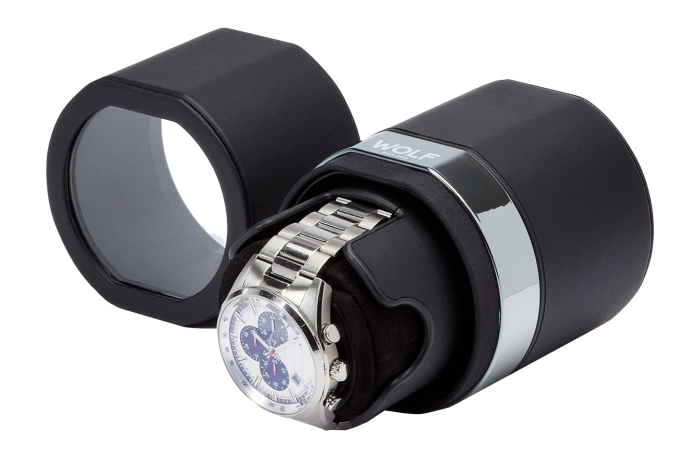
“Technological advances have been important to the development of the business,” says Wolf. “Our safes and cabinets will accommodate up to 52 watches and can be controlled by a mobile phone app that enables each winder to be set independently to the specific turning speed and direction recommended for the relevant watch.”
Wolf reserves his greatest enthusiasm not for the company’s largest products, but for one of its smallest — a £599, travel-sized automatic winder called The Rocket.
“The Rocket is the smallest winder on the planet,” he says. “It took us three years to design and develop, and features a patented system that counts the number of turns per day, a dynamic cuff that fits any size of strap or bracelet and a programmable motor.
“We’re really proud of it because it’s very difficult to make a small, attractive container in which there are hundreds of moving parts, all of which have to work together reliably for years to come. “Which,” reflects Wolf, “is probably why very few people have bothered to get into the same business.”
Comments